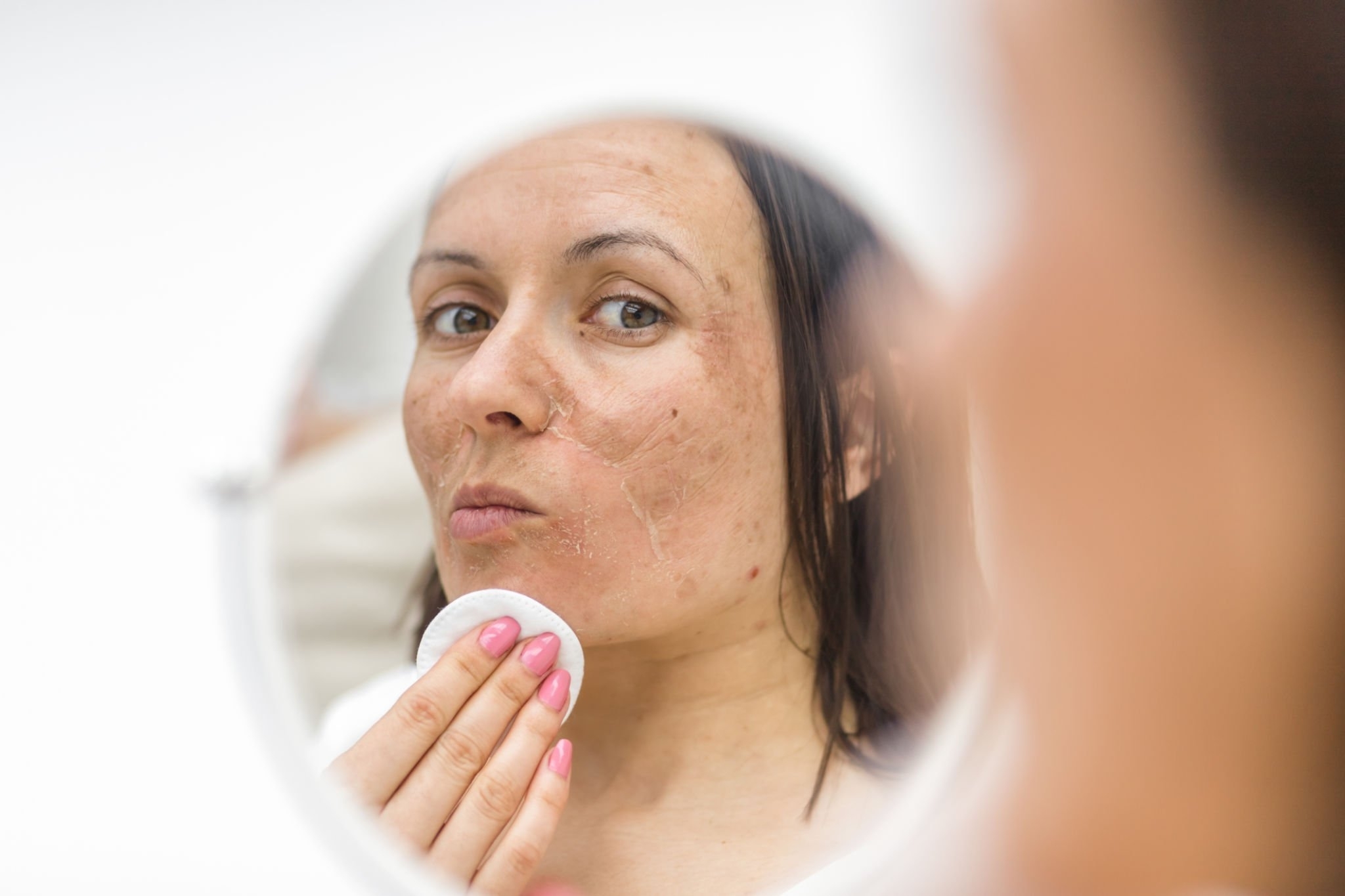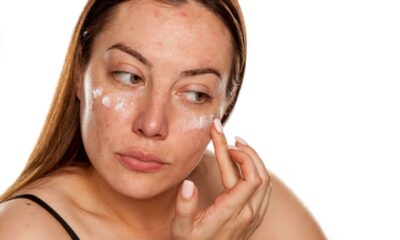HEALTH
Melasma During Pregnancy: Everything You Need to Know
Melasma is a skin disease prevalent among pregnant women. It is characterized by dark, discolored areas on the face and can cause women frustration and self-consciousness. However, what is melasma and how is it treated during pregnancy? This article will provide a complete overview of melasma during pregnancy.
What is Melasma?
Melasma is a skin disorder that causes the development of dark areas on the face. It affects women of all ages and races and is most typically observed on the cheeks, forehead, nose, and chin. It is not fully understood what causes melasma, but it is considered to be related to hormonal changes in the body, especially during pregnancy. Additionally, sun exposure and genetics can contribute to the formation of melasma.
Melasma During Pregnancy: The Causes and Triggers
Pregnancy is one of the leading causes of melasma. As the body experiences an increase in hormones, the skin might become more sensitive to the sun’s rays, leading to the appearance of dark spots. The development of melasma during pregnancy can also be influenced by genetics, stress, and certain drugs.
How to Identify Melasma During Pregnancy
Pregnancy-related melasma is readily identifiable by its dark, discolored spots on the face. Typically symmetrical, these patches can be found on the cheekbones, forehead, nose, and chin. They may have a uniform or mottled look, and following sun exposure they may become darker or more prominent.
How to Treat Melasma During Pregnancy
While there is no cure for melasma, a variety of treatments are available to help diminish the appearance of dark areas. Among the most prevalent therapies for melasma during pregnancy are the following:
• Sunscreen: Using a sunscreen with a high SPF can protect the skin from more sun damage and prevent the black spots from becoming darker.
• Topical lightening treatments: A variety of lightening creams are available to help lessen the look of dark spots. These creams may contain hydroquinone, kojic acid, and vitamin C, and they are most effective when used in conjunction with other therapies.
• Chemical peels: Chemical peels can brighten the skin and diminish the appearance of dark spots. They function by eliminating the skin’s outermost layers, revealing brighter, smoother skin beneath.
• Lasers and light therapies: Lasers and light therapies can also be used to treat melasma by eliminating the skin cells that create pigment. These therapies can be successful, but they can be costly and may not be appropriate for pregnant women.
Medication for Melasma During Pregnancy
Melasma commonly referred to as the “mask of pregnancy,” is a common skin disease that affects many pregnant women. It causes dark, discolored spots on the face, which, while not hazardous, can be highly conspicuous and ugly.
Several drugs exist for the treatment of melasma, however, their usage during pregnancy can be problematic. In this post, we will examine the potential treatment options and provide advice for pregnant women plagued by melasma.
Topical Medications for Melasma During Pregnancy
Hydroquinone, kojic acid, and azelaic acid are frequently applied topically to treat melasma. However, the safety of these drugs during pregnancy is not fully established, and their use is therefore typically avoided.
If you are pregnant and have melasma, you should discuss your treatment options with a dermatologist. Your dermatologist can help you select the optimal course of action, taking your unique circumstances and the safety of your developing child into account.
Chemical Peels for Melasma During Pregnancy
In addition, chemical peels, which include the application of a chemical solution to the skin, are frequently used to treat melasma. However, similar to topical drugs, the safety of chemical peels during pregnancy has not been adequately demonstrated; hence, they should be used with caution.
Before receiving a chemical peel, it is essential to explore your options with a dermatologist, as the peel’s intensity and duration may vary depending on your unique circumstances.
Laser Therapy for Melasma During Pregnancy
Laser therapy, which involves the application of powerful light to the afflicted skin, is an additional treatment option for melasma. Despite the fact that laser therapy has been demonstrated to be beneficial, its safety during pregnancy has not been adequately proven.
Before receiving laser therapy for melasma during pregnancy, it is essential to review your treatment choices with a dermatologist. Your dermatologist can assist you in determining the optimal course of action for your specific situation.
Natural Remedies for Melasma During Pregnancy
In addition to conventional treatments, a number of natural remedies may assist to improve the appearance of pregnancy-related melasma. These cures include, among others, the use of vitamin C, aloe vera, and licorice root.
Even while natural remedies are typically regarded as safe during pregnancy, it is vital to discuss your alternatives with a healthcare professional prior to taking any new solutions. Your healthcare professional can assist you in determining the optimal course of action for your specific situation.
Prevention of Melasma During Pregnancy
Melasma Prevention During Pregnancy
While there is no foolproof way to prevent melasma during pregnancy, there are a number of measures you may do to lower your likelihood of acquiring this illness. These measures consist of avoiding sun exposure, applying broad-spectrum sunscreen, and wearing a hat or other protective apparel.
In addition, a balanced diet rich in vitamins and minerals, such as vitamin C, can minimize the chance of developing melasma during pregnancy.
Frequently Asked Questions on Melasma During Pregnancy
Pregnancy can be a joyful and exciting time for a woman, but it can also be accompanied by a variety of skin changes and concerns. Melasma, sometimes known as the “mask of pregnancy,” is one of the most frequent skin problems that can develop during pregnancy. In this essay, we will provide answers to some of the most often-asked issues regarding melasma during pregnancy.
What is Melasma During Pregnancy?
Melasma is a skin disorder characterized by the appearance of dark, irregularly shaped spots on the face, especially the cheeks, nose, forehead, and upper lip. It is reported to affect up to 70% of pregnant women, with darker-skinned women being more susceptible.
What Causes Melasma During Pregnancy?
Although the precise etiology of melasma during pregnancy is unknown, it is believed to be associated to the hormonal changes that occur throughout pregnancy. Increased levels of estrogen and progesterone can encourage the formation of melanin, the pigment that gives skin its color, resulting in melasma’s dark spots.
Is Melasma During Pregnancy Harmful?
Melasma during pregnancy is not dangerous to either the mother or the unborn child. However, it can be a cosmetic concern for many women due to the difficulty in concealing the dark patches on the face.
How Can I Prevent Melasma During Pregnancy?
Unfortunately, there is no foolproof technique to prevent pregnancy-related melasma. However, there are things you can take to reduce your risk, such as wearing a hat with a wide brim and applying sunscreen with a high SPF when you are out in the sun.
How is Melasma During Pregnancy Treated?
• Topical lotions and gels containing lightening agents such as hydroquinone or kojic acid, which can help fade the dark areas of melasma.
• Chemical peels entail the application of a chemical solution to the skin in order to remove the outermost layer of skin and reveal lighter, cleaner skin beneath.
• Microdermabrasion: This technique involves the use of a fine abrasive instrument to gently exfoliate the skin and eliminate melasma’s dark spots.
It is crucial to note that many melasma therapies are contraindicated during pregnancy since they can be detrimental to the unborn child. If you are pregnant and concerned about melasma, it is advisable to discuss a safe and effective treatment plan with your doctor.
Will Melasma Disappear After Pregnancy?
Melasma will disappear on its own for some women after pregnancy. For some, though, the black spots may persist or even become worse after pregnancy.
Can I Wear Makeup to Cover Melasma During Pregnancy?
Melasma can be concealed with makeup during pregnancy. There are a variety of concealers and foundations designed expressly to mask dark patches and discoloration. To avoid skin irritation, it is essential to choose a product that is safe for use during pregnancy and to apply it with care.
Conclusion
During pregnancy, melasma can be a bothersome and distressing skin disease for many women. You can feel more confident and at ease during this wonderful time if you understand what causes it and how to cure it. Consult your doctor if you have any worries about melasma or any other skin disease during pregnancy.























